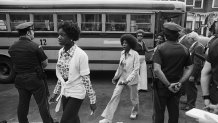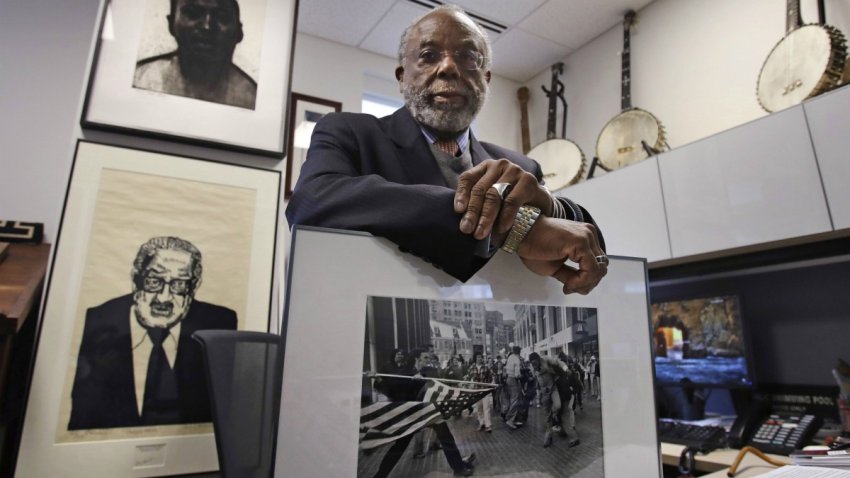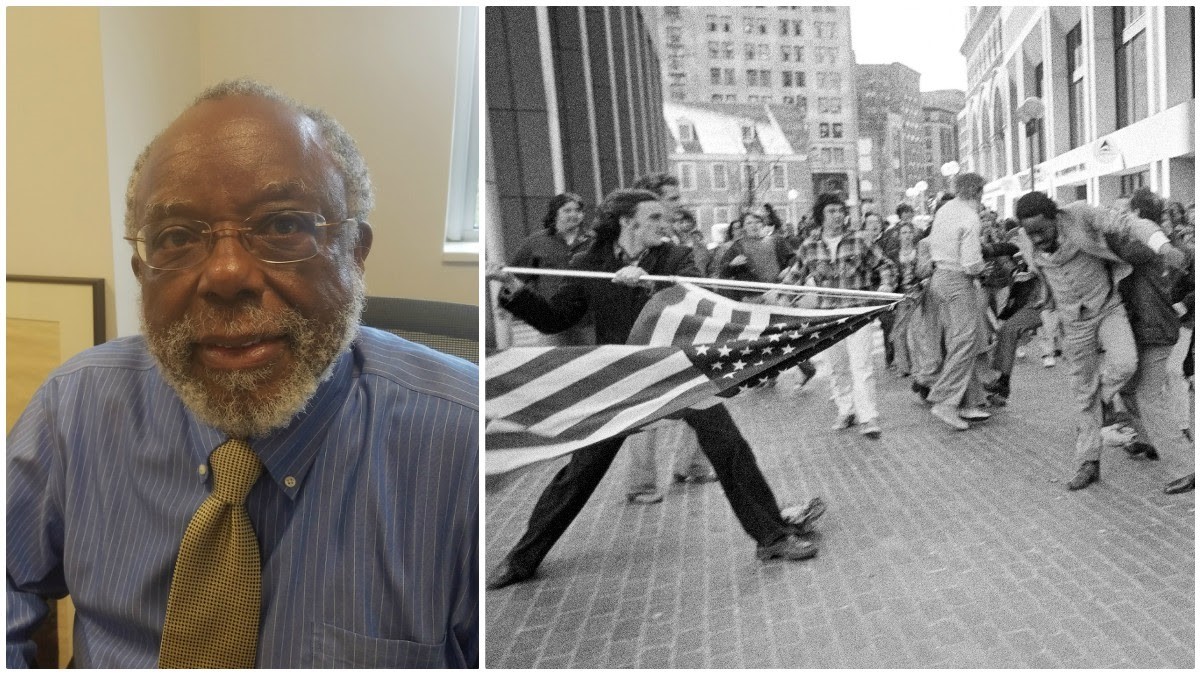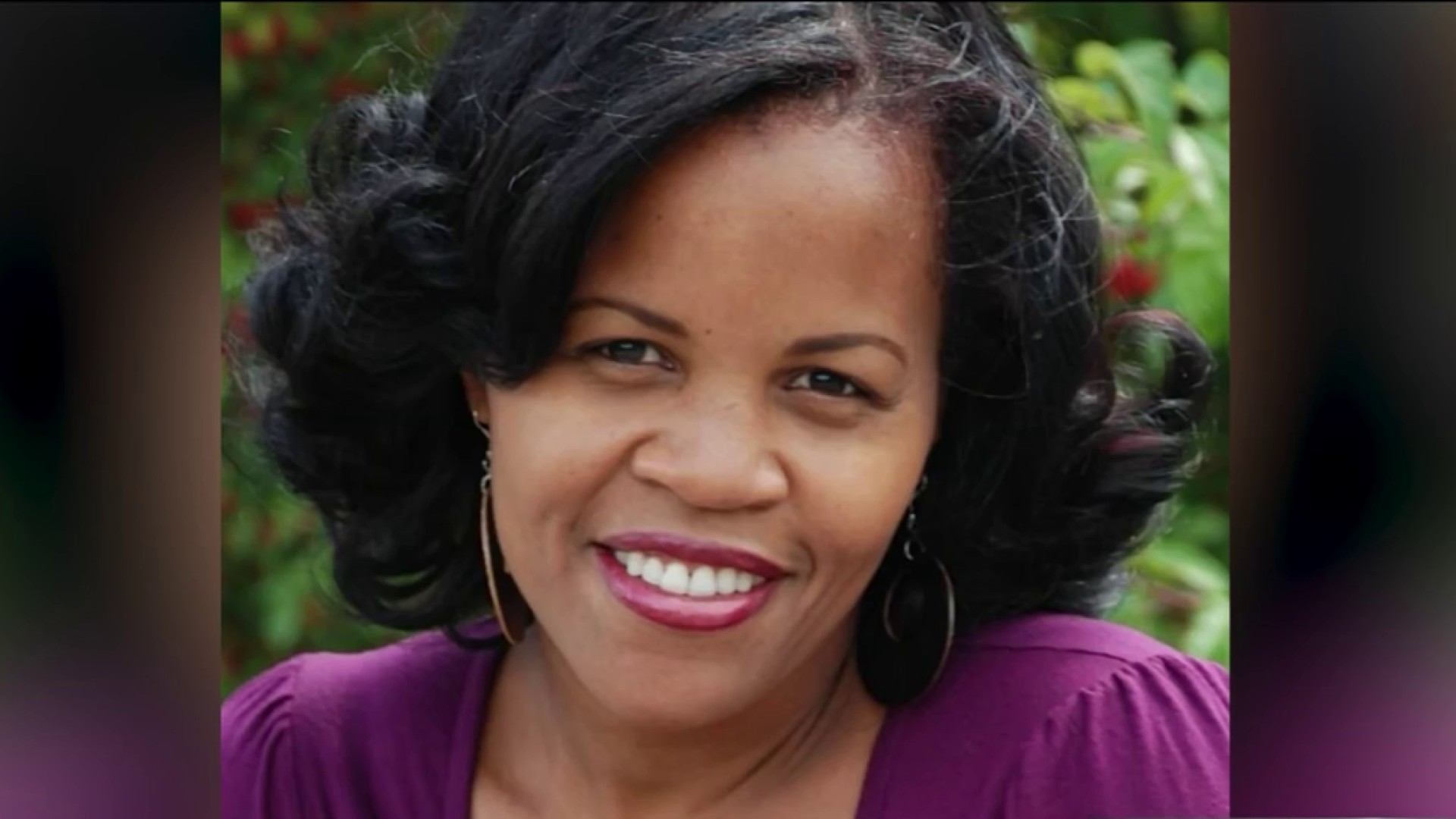Fifty years ago, school buses started shuttling students across Boston as part of court-ordered desegregation efforts that quickly started violent protests that still affect how the city is viewed. A new tour is helping a new generation understand what its organizer calls “the most important event” in Boston’s “civic history in the last 75 years.”
Fifty years to the day since yellow school buses first rolled Boston toward a desegregated future, some of the players from the era's historic events returned to the scene and reminisced about how busing came to be.
Ira Jackson, chief of staff to Boston Mayor Kevin White, said he was in South Boston on Sept. 12, 1974, as enforcement began of U.S. District Court Judge W. Arthur Garrity Jr.'s order to forcibly end de-facto segregation in the capital's public schools.
WATCH ANYTIME FOR FREE
Stream NBC10 Boston news for free, 24/7, wherever you are. |
"Witnessing young Black children having bricks thrown at the windows of their school buses," Jackson told the News Service, "and I was there when they returned at the end of school. They were on the floor of the school buses with glass shards in their hair. It was as ugly an experience as Boston has ever seen. It was our Selma, it was our Little Rock. And it was a day of shame."
Jackson was one of several special guests participating in a seven-stop walk-and-ride tour hosted by the Boston Desegregation and Busing Initiative. The group's 45-member committee has a series of events planned during this 50th anniversary year.
Get updates on what's happening in Boston to your inbox. Sign up for our News Headlines newsletter.

Thursday's media tour previewed a program that will open to the general public on Saturday at 10 a.m.
The commemorations have brought some people back together. Vernita Weller is the daughter of Rev. Vernon Carter, a chief proponent of the state Racial Imbalance Act, and she remembers Rev. Nannene Gowdy protesting with her father in front of the Boston School Department. The two didn't see each other for decades.
"And we have just been reunited in the last few months," Weller said.

The walking portion of the tour started on the sidewalk near 15 Beacon St., which 50 years ago was the headquarters of the Boston School Committee. Now, it's the XV Beacon luxury hotel -- "a different scene," as longtime community organizer Lew Finfer put it.
Finfer pointed up at the hotel, where in September 1963 a two-day sit-in was led by Tom Atkins, who later became Boston's first Black city councilor.
"And people sat in overnight, and they blocked their supporters from bringing them food, so people lifted the food up. Lifted the food up to them in the higher windows," Finfer said.
More
The tour's stops at 15 Beacon St. and the nearby State House were intended to show a long road that led up to enforcement of Judge Garrity's ruling. Finfer said it's a misconception that Garrity touched off the entire busing era.
Attorney Eric Van Loon, who represented Black schoolparents in the federal lawsuit that led to Garrity's order, said that "even if Judge Garrity had never been involved, there was an order from the Massachusetts state Supreme Court for the School Committee to implement the plan that was implemented that year."
"And the violence, the problems, the everything -- regrettably would seem to have happened nonetheless," he said.
The tour also visited the State House where the Legislature heard from Rev. Dr. Martin Luther King in April 1965, and where the General Court ultimately passed the Racial Imbalance Act that August.

Carter decided to don a placard and walk back and forth in front of 15 Beacon St. until lawmakers passed the bill, his daughter Weller said.
"And he did that, for 114 days and five hours, until Aug. 18," she said Thursday. "And during that time, people from all over Boston joined him. There were, at times, a thousand people out here joining him. … People gave him food, they gave him water, they brought him coffee, he took showers at the Paulist Center. He had a van that was given to him by the local NAACP that was right over by where the restaurant Mooo…. is -- he slept there."
Weller, then a young girl, remembered visiting the protest line and taking naps in the van, next to what is now an expensive steakhouse.
"Reporters asked him, 'Are you going to stay here all winter?' And he said, 'If that's what it takes, that's what I'm going to do,'" she recalled.
In a statement at the end of the vigil, Carter recorded his thanks to Republican Gov. John Volpe for "being the first governor in the United States to propose that racial imbalance be outlawed by legislation." Carter was handed the first pen that Volpe used to sign the bill, his daughter said.
The new law outlawed racial imbalance in the state's public schools, but the journey was far from over. It was the Boston School Committee's noncompliance that resulted in the federal lawsuit and Garrity's busing order.
The "racist School Committee put all the resources where the white kids were," Van Loon said at the State House steps, leaving decrepit school buildings and insufficient textbooks and teaching staff in Black neighborhoods.
Other stops on the walk-and-ride tour route included the JFK Federal Building, Boston City Hall, the federal courthouse in Post Office Square where Garrity's courtroom was located, Excel High School in South Boston, and Freedom House in Dorchester.
"As ugly as busing was," Jackson said, "and as disappointed as we are today in the performance of the Boston Public Schools, I think this was Boston's crucible moment -- when we confronted racism and intolerance and division. And look at us now. We're a city that's welcoming, diverse, and entirely different."



